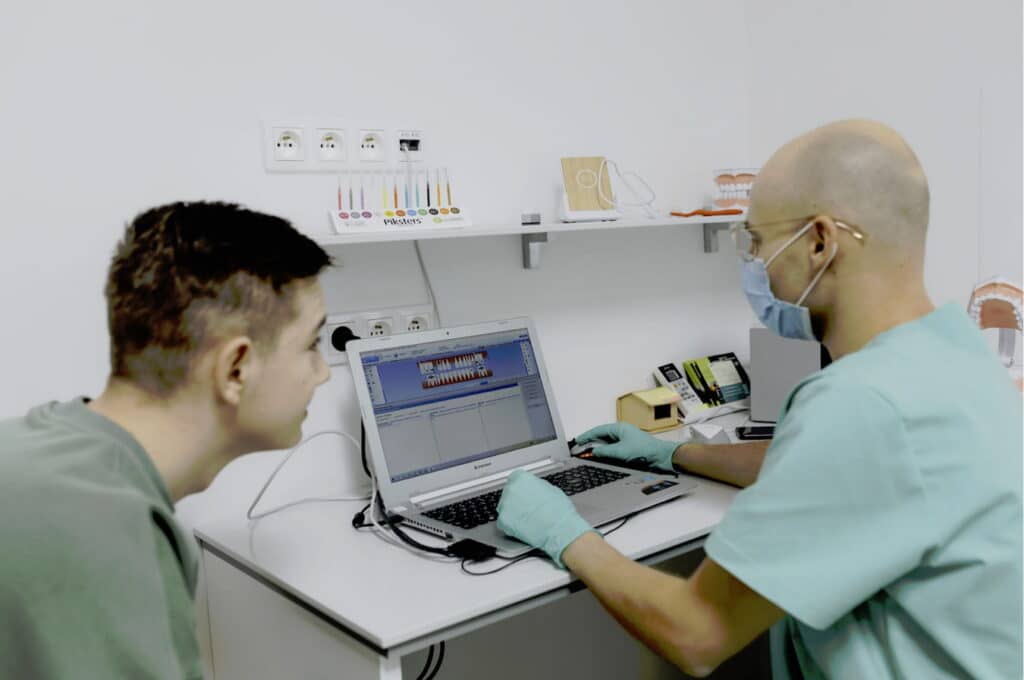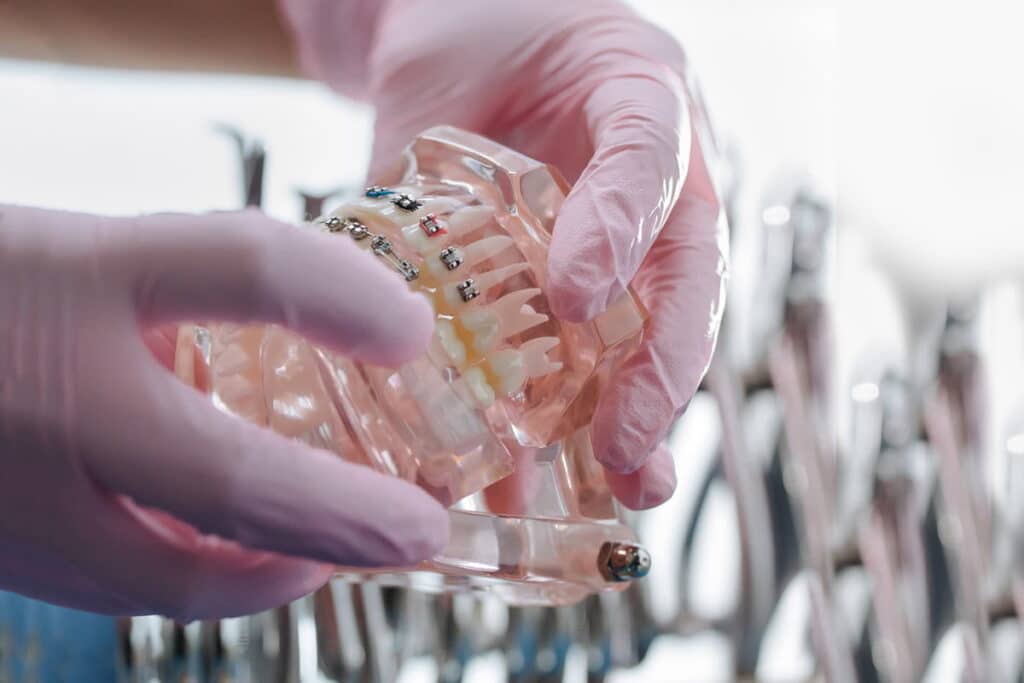Dentists are often considered to be the least desirable doctors to visit. The first thing that scares each of us is the absolute defenselessness in front of doctors and their devices because we can’t even say anything. The second, of course, is the bills. And if a good dentist copes with the first fear, explaining how we can communicate during dental procedures, then sometimes even insurance cannot cope with the second one. So dentist expenses still come to us in nightmares.
However, not treating your teeth because of this and avoiding dental procedures is a bad choice. Sooner or later, you will have to do this, and the more advanced the case, the more money it will take to treat it. In this case, the question of dental financing arises. Do you ever wonder, “How can I fix my teeth with no money”? Such methods exist, no matter how surprising they may sound. You can choose some loans to finance your dental procedure, for example.
Of course, the money borrowed for dental financing must be returned. However, your teeth will already be healthy, the pain will stop driving you crazy, and you won’t get any late medical bills.
So if your dental insurance can’t fully cover procedures, or if you don’t have any at all, look into dental loans. Many lenders offer dental loans with various conditions and different options, so you can choose something that suits you. But let’s look at a dental loan and what it is for in more detail.
What Is Dental Financing?
The term “dental financing” describes a variety of methods by that patients might pay for dental work. It’s no secret that dental care can be costly, and many people may delay vital maintenance out of concern for their budget. Instead of having to pay everything up front, dental financing gives patients the option to spread out the cost of their treatment.
There are several options for dental financing, for example, payment plans offered by dental offices, credit cards, personal loans, dental loans and dental-specific financing programs.
Ways To Finance Your Dental Costs
There are several ways to pay for your dental care, and the best one for you will depend on your unique needs and circumstances. The following are some of the popular methods for paying for dental costs:
- Dental Insurance. One of the most popular methods of covering dental expenses is dental insurance. Dental insurance policies generally cover regular checkups, cleanings, and x-rays. However, the level of coverage varies per plan, and some procedures could not even be covered.
- Payment Plans. You can stretch out the cost of treatment over time by using one of the several payment plans that many dental practices offer. These plans, which may have zero or low interest, can make it simpler to budget for pricey procedures.
- Credit Cards. Dental procedures can be paid for with credit cards, but it’s crucial to be cautious not to rack up too much debt. When using a credit card, make sure to get one with a low-interest rate and settle the bill as soon as you can. In addition, you can get a medical credit card which is much better suited for such cases.
- Personal Loans. Personal loans, due to their versatility, can help you pay your medical bill after a visit to the dentist. Usually, such loans have lower rates than credit cards, and they often require a good credit score.
- Dental Loans. A dental loan is designed specifically for paying bills from dentistry. Such a loan does not require collateral and offers fairly low-interest rates. In addition, they are available for people with bad credit.
- Dental-Specific Financing Programs. There are various financing options available for dental services, including CareCredit. In addition to providing customers with a credit line that may be used only for dental procedures, these programs may also offer promotional financing alternatives that have low or even free interest rates for a predetermined period.
- Health Savings Accounts (HSAs) or Flexible Spending Accounts (FSAs). You can set money aside in tax-advantaged accounts called HSAs and FSAs for medical costs, including dental work. These accounts might be an excellent method to use pre-tax money to cover dental expenses. In general, any dental savings plan is a good option.
What Is A Dental Loan
A dental loan is a personal loan that is used to pay for dental procedures. You can use the loan funds to cover the cost of every dental procedure, from routine cleanings to more complex treatments like braces or dental implants. Moreover, dental loans are typically unsecured, meaning they don’t require collateral and provide loans up to $50,000 for terms up to 64 months.
Many lenders offer affordable and accessible financing options for dental work on finance, allowing you to prioritize your oral health without sacrificing your financial well-being. Private lenders, online lenders, and even banks and credit unions offer dental financing. Interest rates and terms may vary depending on the lender and the borrower’s creditworthiness paying attention to credit history. Some lenders may also offer promotional rates or loan terms specifically for dental procedures.
Dental financing loans can be a good option for people who don’t have dental insurance or who need to cover dental costs that aren’t covered by insurance. Financing dental work using loans can also be a good choice for people who want to spread out the cost of treatment over time rather than paying for everything upfront.
How Do Dental Loans Work?
Before you apply for a dental loan, it’s worth shopping around. Multiple lenders have different offers, and which one to choose is up to you. For example, you can take out a loan for a shorter period to pay less interest, but then your monthly payments will be higher. Or make the loan term longer so that the loan payment does not harm your budget, but then you will pay more interest. In this case, as with other loans, such as personal loans or auto loans, it is worth doing a little research, choosing the offers you like, and prequalifying. Then you will be able to clearly understand what the lender can offer you and how comfortable it is for you.
After choosing the right dental loan offer, apply for it. You will need to provide information about your income, employment, and credit history, and possibly some other documents, the list of which may differ from lender to lender. When lenders receive your application, they conduct checks, and it can be a hard credit check or a soft one. Dental loans are often available to people with bad credit; however, bad credit can cost you a higher interest rate. When all checks have been passed, and your creditworthiness has been verified, the lender will decide if you can get a loan and under what conditions.
If the dental loan is approved, the money will go into your bank account. How quickly you access the funds will depend solely on your lender. Some need a week, and others do it in a couple of days. It is important not to forget to make regular payments on the loan, and then you will not have problems. If you want to pay off your loan early, some lenders may require you to pay an early payment penalty. To avoid this, carefully read the loan agreement, in which the lender must indicate all fees and penalties that he may charge you.
FAQ
What is dental financing?
Dental financing refers to the various ways you can pay for dental procedures, for example, dental insurance, payment plans, credit cards, personal loans, and dental loans.
What types of dental procedures can I finance?
You can finance a wide range of dental procedures, like routine care, fillings, crowns, root canals, braces, implants, and dentures.
What is a dental loan?
A dental loan is a type of personal loan that is specifically designed to help you pay for dental work. You can use the funds from a dental loan to cover the cost of your treatment, and you’ll repay the loan over time with interest.
How do I apply for a dental loan?
To apply for a dental loan, you’ll need to find a lender that offers this type of financing. You’ll need to provide information about your income, employment, and credit history, and the lender will evaluate your application to determine if you’re eligible for a loan.
What should I consider when choosing a dental financing option?
When you choose a dental financing option, consider factors such as interest rates, repayment terms, fees, and any promotional offers. Make sure you understand the total cost of financing and how it will impact your budget.

Dr. Elizabeth Wakim, DDS, is the founder of Enhanced Wellness. She’s a compassionate and highly-regarded dentist with her own practice in Washington, Pennsylvania, known for providing modern, comprehensive dental care, botox and facial aesthetics with a focus on patient comfort and anxiety reduction, serving general, cosmetic, and pediatric dentistry needs.









